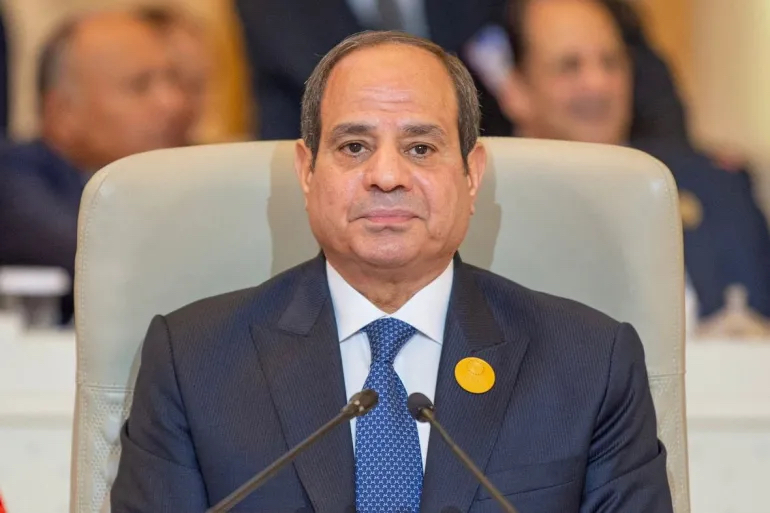
The Elections & Driving Concerns
- The three days of voting for Egypt’s presidential election concluded on December 12. Final results are slated to be announced on December 18.
- Experts expect President Abdel Fattah el-Sisi to win a third and final term after serving for 10 years.
- A constitutional amendment that el-Sisi enacted in 2019 extended presidential terms from four to six years and limited the number of terms to three.
- The other candidates include Farid Zahran, head of the opposition Social Democratic Party; Abdel-Sanad Yamama, chairman of the Wafd Party; and Hazem Omar, head of the Republican People’s Party. However, experts assess that none pose a serious threat to el-Sisi’s reelection.
- El-Sisi’s most prominent political challenger, Ahmed el-Tantawy, ended his campaign in October after his supporters were reportedly harassed and he failed to secure the 25,000 public endorsement threshold necessary to stand the presidential vote.
- Prior to October 7, Egypt’s economic crisis was the dominant concern; however, this has been recently overshadowed by the Israel-Hamas war in neighboring Gaza.
A Fair Election?
- In Egypt’s most recent election, in 2018, President el-Sisi won 97% of the vote after arresting key challengers.
- During el-Sisi’s presidency, his government has been accused of suppressing the freedom of expression and the independent press.
- According to Human Rights Watch, Egyptian authorities arrested supporters and relatives of Tantawy on the basis of their relationship with Tantawy.
- Google’s Threat Analysis Group and Citizen Lab asserted that Tantawy’s phone was targeted by spyware after announcing his presidential bid. Citizen Lab said it had “high confidence” that Egypt’s government was behind the attack.
- Personal accounts indicate that Egyptians who do not vote may be fined, and those who voted received 200 Egyptian Pounds ($6.67 USD).
Egypt’s Economic Crisis
- Egypt is struggling with an economic crisis as annual inflation reached record high levels this year, currently sitting at 34.6%
- Food and beverage inflation is even higher at 64.5% compared to last year.
- Egypt owes $165 billion USD in foreign debt, including $42.26 billion due in 2024.
- Bloomberg ranked Egypt as the second most likely country to default on loans after Ukraine.
- Egypt is struggling with a shortage of hard currency, despite recent currency exchanges with countries like the United Arab Emirates.
- Before the Russian invasion of Ukraine, Egypt imported roughly 12 million metric tons of wheat a year of which roughly 60% came from Russia and 22% from Ukraine.
- The International Monetary Fund postponed two reviews of a $3 billion loan program after Egypt failed to make necessary reforms including implementing a flexible exchange rate.
- The IMF is “seriously considering” augmenting the initial $3 billion loan program due to the difficulties Egypt has faced due to the Israel-Hamas war.
- El-Sisi blames the coronavirus pandemic and the war in Ukraine for economic woes.
- Many experts also attribute these struggles to the military’s control over the economy and massive government spending projects, including a $58 billion dollar new capital in the desert outside of Cairo.
(Banner image: Saudi Press Agency/Handout via Reuters)
